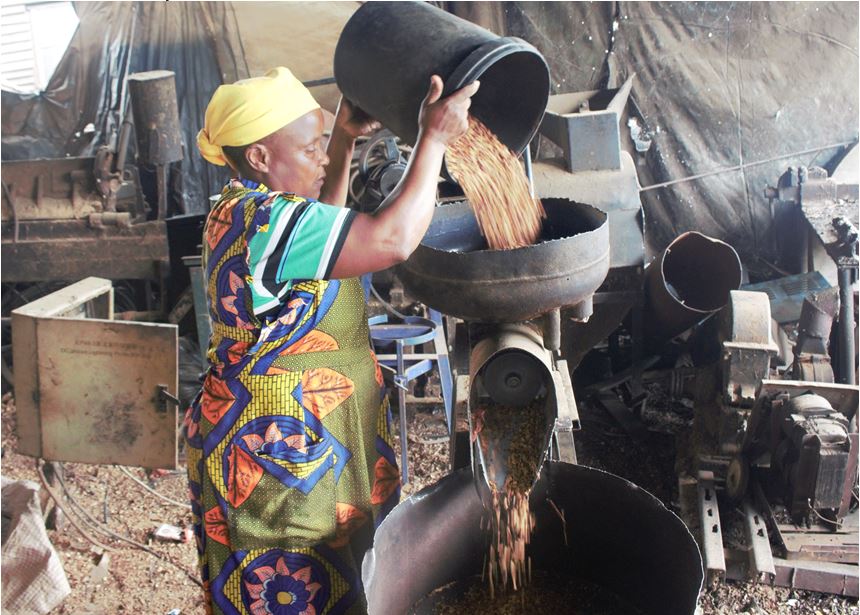By Charles Dhewa
African countries have been taking advice from foreign technical experts for generations. If technical expertise was a solution, the majority of countries and poor communities would have moved out of poverty by now.
The fact that poverty levels have remained the same and in some cases worsened indicates a need for developing countries to pause and reflect on the differences between technical skills and knowledge. While technical expertise tends to promote over-dependence on a small circle of ‘experts’ whose personal biases can undermine the quality of their advice, knowledge is more about tapping into the benefits of diversity.
Limitations of a technical skills-driven agriculture system
Where technical skills are used to enhance agricultural production and productivity, classroom approaches of imparting skills reveal several limitations including:
- It is usually a push or supply-driven method whose assumption is that the extension officer or economist or instructor or teacher has all the knowledge, information and capacity to deliver.
- Skills are limited to available technologies and tools. For instance, fertilizer application is connected with the use of machinery like planters that are largely part of imported knowledge with no room for innovation. What you are taught is what you do. It is a generic curricular-based skills delivery system which does not take into account different environments, natural resources, labor, climatic conditions, soil types (some soils may not respond well to fertilizer). How do farmers adjust their skills if suddenly they start receiving too much rainfall or less rainfall when instructions on fertilization use are generic? Some of the skills are applied before crops are planted, for instance fertilizer has to be applied before rain starts falling and there is often a mismatch between amount of fertilizer already applied in the soil and amount of rainfall received.
- A technical skills focus discourages innovation. For instance farming as a business has formulae for costing, marketing principles and other pieces of information. To a greater extent, the skills don’t provide room for in-born traits or intrinsic skills in which knowledge travels. Natural traits and skills are major sources of passion anchored in indigenous knowledge systems. A technical skills focus emphasizes academic literacy as part and parcel of absorptive capacity. This means no matter how naturally gifted someone is, s/he may face challenges if not literate.
- Technical skills do not often give room for building Communities of Practice (CoPs) through which information and knowledge is mostly shared. CoPs are good at knowledge generation, processing and communicating with actors using language, skills and relationships that are found within the ecosystem, not cast in stone. Some of the knowledge is built and shared based on the fact that actors come from the same home area. Others use knowledge built over years around particular value chains.
Technical skills do not spread along entire value chains
In most African countries that continue to import knowledge from the West, skills are limited to production and do not go all the way to consumption. Such skills cannot be used to change consumption patterns. Where emphasis is on technical skills to enhance production and productivity, a mismatch between demand and supply is a major setback, characterized by volumes (farmers won’t know how much is needed in terms of varieties as well as tastes and preferences). Ideally knowledge and information from the market should drive production, for instance appropriate production skills and technology should be determined by the market. Production should be informed by the market not by technical skills. In the mass market, knowledge and information generation, processing and communication is fluid as it quickly adjusts to emerging needs.
Reliance on technical skills tends to derail change and innovation
That is why changing mindsets of smallholder farmers is a challenge. There is too much dependence on those presumed to be knowledgeable, leading to most skills remaining in silos. Contract companies may decide to focus on specific skills not replicable to other commodities. For instance, they may encourage farmers to focus too much on tobacco production at the expense of skills related to other commodities. That is why farmers continue to produce commodities that no longer have a market. For instance, some farmers may hold onto cotton production when the market for cotton has disappeared. The farmers have only mastered cotton production skills so much that they cannot be convinced to replace cotton with sweet potatoes.
As if that is not enough, most of the skills foisted on farmers do not have an upgrading system. A single curriculum has been used for years and farmers are not graduating to new sets of skills. For example, field days continue to be used in areas that have been doing well with one crop for years. There is nothing new for farmers to learn using field days in a community where maize production has been done very well for decades. Mechanisms for tailor-making skills by gender, age and location are also missing. It is not easy to make technical skills gender-specific, age-specific and location-specific. Everyone is trained on farming as a business using the same approach and principles irrespective of gender, age and location. Youths have their own ways of generating and sharing information to build their own CoPs. How can we tap into social media in promoting consumption of nutritious food among youth? How can we use social clubs or VSLAs to promote nutritious consumption among breast feeding mothers in dry regions of the country? This is how common knowledge is shared.
